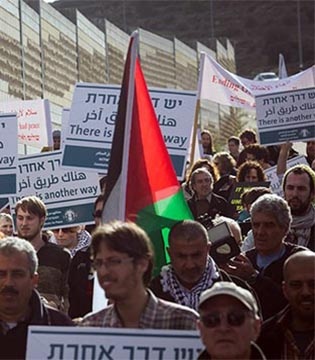They tried using to use rape to silence gals protesters. It failed to work – Tek Portal

Khartoum, Sudan — Weeks into the protests that would finally topple Sudan’s dictator, the authorities understood it had an unparalleled dilemma on its hands: the selection of women of all ages in the streets contacting for alter much outnumbered the males. So the regime’s best brass sent a chilling information down to its officers on the ground: “Break the ladies, because if you break the women, you break the adult males.”What followed, a number of officials advised CNN, was a systematic try to goal the gals at the coronary heart of the greatest anti-authorities protests in many years.In the early months of the rebellion, troopers began to arrest females on the entrance traces in the cash Khartoum and, activists say, just take them to top secret detention web-sites, where they were photographed bare and threatened with sexual violence. But as Omar al-Bashir’s 30-year grip on ability commenced to slip, soldiers started to make great on their threats. Some gals had been beaten senseless by law enforcement in public. Some others had been dragged into the automobiles of security forces and raped, the activists stated.
The orders from the routine had been very clear, in accordance to just one intelligence officer. “We all know what it suggests to break a girl,” he instructed CNN.
The assaults established off a ripple-outcome of abuse — husbands started to divorce their wives out of shame, and fathers defeat their daughters into submission, in an endeavor to hold them at dwelling.
But time and time once more, the gals returned to the streets, throwing tear fuel canisters back at the armed service, climbing atop car roofs to urge the protesters on, and manning meals and drink stalls to enable in any way they could.
When their fearlessness and sheer quantities — by some estimates gals accounted for up to 70% of demonstrators — built them a concentrate on, they were beaten, but not broken.
Bashir was lastly forced out past thirty day period, but the military services-led transitional council that replaced him is refusing to hand more than electrical power to civilians. The protests haven’t stopped and the combat for democracy is much from in excess of, but the ladies who performed a vital role in the dictator’s downfall have by now paid out a heavy price tag for their bravery.
The Sudanese governing administration has not responded to multiple requests for remark.
The modern wave of anti-federal government demonstrations in Sudan started late very last 12 months in excess of the soaring charge of residing, but swiftly escalated into nationwide calls for Bashir’s removal.
In the early times of the protests in Khartoum, security forces tried to intimidate female activists by threatening to ruin their reputations.
Officers warned them that their total neighborhood would know they have been “free” when they had been being dropped off in police autos late at night, in accordance to protester Wifaq Quraishi.
Ahead of lengthy, the verbal insults turned into psychological abuse, with officers forcing girls into compromising positions and then documenting it.
Quraishi advised CNN she was “subjected to many detentions” during her a few-month involvement in the rebellion, each individual of them various.
A detention could require “blackmail,” “getting photos of you naked,” or “the risk of rape,” she explained.
Quraishi said throughout physique searches she was created to strip bare in front of a camera. “Pictures were taken of me when I was getting undressed — I was explained to that it was a search around which I had no authority,” the 27-year-previous extra.
Quraishi experienced “no strategy” where the photos would end up, but said she read tales of women of all ages being threatened by the compromising pictures.
“In reality these photographs may possibly not even exist,” she mentioned. “But that is blackmail.”
As the protests escalated, so did the violence. Just one day, Quraishi said she was attacked by a security official at Khartoum University, her alma mater and a area she’d beforehand thought of secure. The man strike her with the butt of his rifle so hard that he “dislocated my jaw, and my eye was whole of blood.”
Another protester, Rifga Abdelrahman, mentioned her pals had been “crushed up, their hair shaved off, insulted, taken care of in a way that no Sudanese woman need to be taken care of.”
This 7 days, throughout a resurgence of violence in the cash, activist Nidal Ahmed was filming protection forces firing on protesters when she was set on by a team of soldiers. They strike her with batons and sticks as they attempted to consider her camera, which captured the incident.
“As soon as I could get my power and stand, they conquer me on my backside and reported ‘run!’ This transpired to all the women — they strike them and advised them to operate,” she reported. “This was a pretty unpleasant detail.”
The very last scene of Ahmed’s footage demonstrates a soldier leaning over her overall body on the floor, his outstretched palm masking the camera lens.
In some scenarios, the abuse went even even further. At minimum 15 women have noted being raped in the course of the uprising, according to Nahed Jabrallah, one of the demonstrators and the founder of SEEMA, a charity tackling violence in opposition to women of all ages and youngster marriage.
Some of the assaults involved “raping the sufferer anally or vaginally,” and some of them took place in the “existence of much more than one human being,” Jabrallah said….






